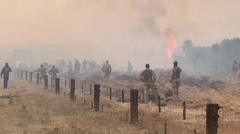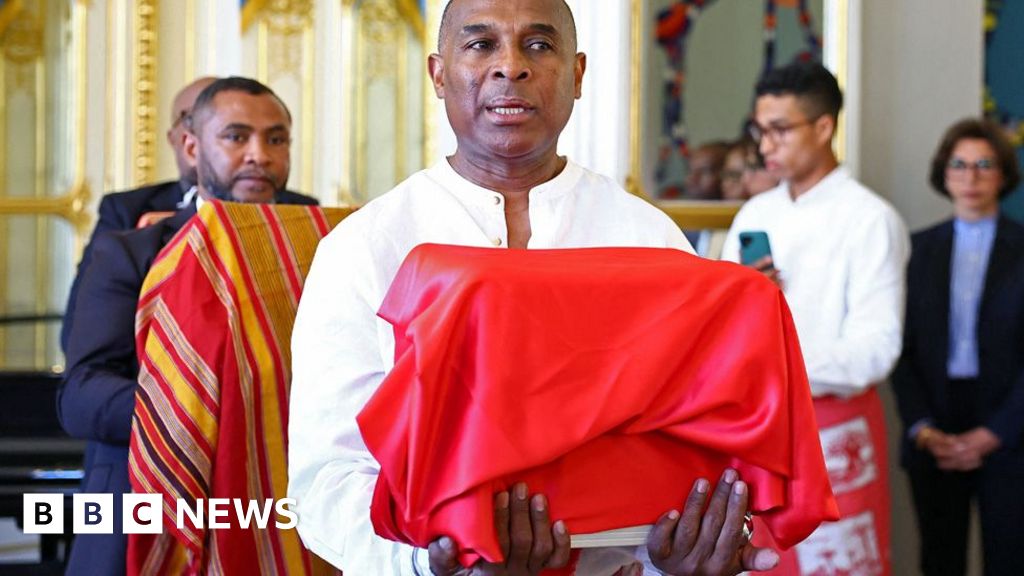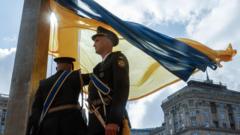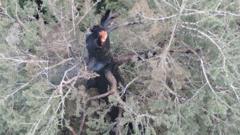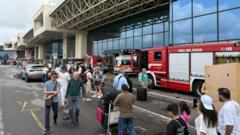The UK government has agreed to provide compensation to approximately 7,723 Kenyans impacted by a fire that occurred during a British military training exercise in March 2021 in the Lolldaiga conservancy, located in Kenya's Rift Valley. This decision follows a protracted legal struggle in which claimants argued they experienced loss of property and health complications due to the devastating blaze.
The British High Commission in Nairobi expressed that the incident was "extremely regrettable," highlighting the UK's commitment in resolving the claims. Although the exact amount of compensation has not been officially disclosed, legal representatives indicated that it amounted to £2.9 million. Lawyer Kevin Kubai termed the settlement as the "best possible outcome," despite concerns from some clients about inadequate compensation relative to their damages.
With much evidence having deteriorated over the four years since the incident, Mr. Kubai remarked that pursuing litigation for another several years would have been challenging. Notably, claimants struggled to provide medical records related to their health issues stemming from smoke inhalation, as many also traditionally used firewood for cooking.
The UK Ministry of Defence attributed the fire to a camp stove accident during the military exercise. The resulting blaze reportedly scorched nearly 7,000 acres of land but left community land unharmed. The claims included environmental damages from smoke and property losses due to wildlife stampedes.
In addition to the compensation, the British government has undertaken restoration work in the burnt areas, while training exercises continue at the Lolldaiga conservancy. This area, spanning around 49,000 acres and set against the majestic backdrop of Mount Kenya, has historical significance linked to land disputes stemming from British colonial actions.
Nearby, the newly renovated Nyati Barracks serves as a base for the British Army Training Unit Kenya (BATUK), which significantly contributes to the local economy. However, the presence of British troops has not been without controversy, with media reports highlighting instances of serious misconduct, including fatal hit-and-runs and allegations against soldiers regarding the exploitation of Kenyan women.
The British High Commission in Nairobi expressed that the incident was "extremely regrettable," highlighting the UK's commitment in resolving the claims. Although the exact amount of compensation has not been officially disclosed, legal representatives indicated that it amounted to £2.9 million. Lawyer Kevin Kubai termed the settlement as the "best possible outcome," despite concerns from some clients about inadequate compensation relative to their damages.
With much evidence having deteriorated over the four years since the incident, Mr. Kubai remarked that pursuing litigation for another several years would have been challenging. Notably, claimants struggled to provide medical records related to their health issues stemming from smoke inhalation, as many also traditionally used firewood for cooking.
The UK Ministry of Defence attributed the fire to a camp stove accident during the military exercise. The resulting blaze reportedly scorched nearly 7,000 acres of land but left community land unharmed. The claims included environmental damages from smoke and property losses due to wildlife stampedes.
In addition to the compensation, the British government has undertaken restoration work in the burnt areas, while training exercises continue at the Lolldaiga conservancy. This area, spanning around 49,000 acres and set against the majestic backdrop of Mount Kenya, has historical significance linked to land disputes stemming from British colonial actions.
Nearby, the newly renovated Nyati Barracks serves as a base for the British Army Training Unit Kenya (BATUK), which significantly contributes to the local economy. However, the presence of British troops has not been without controversy, with media reports highlighting instances of serious misconduct, including fatal hit-and-runs and allegations against soldiers regarding the exploitation of Kenyan women.

